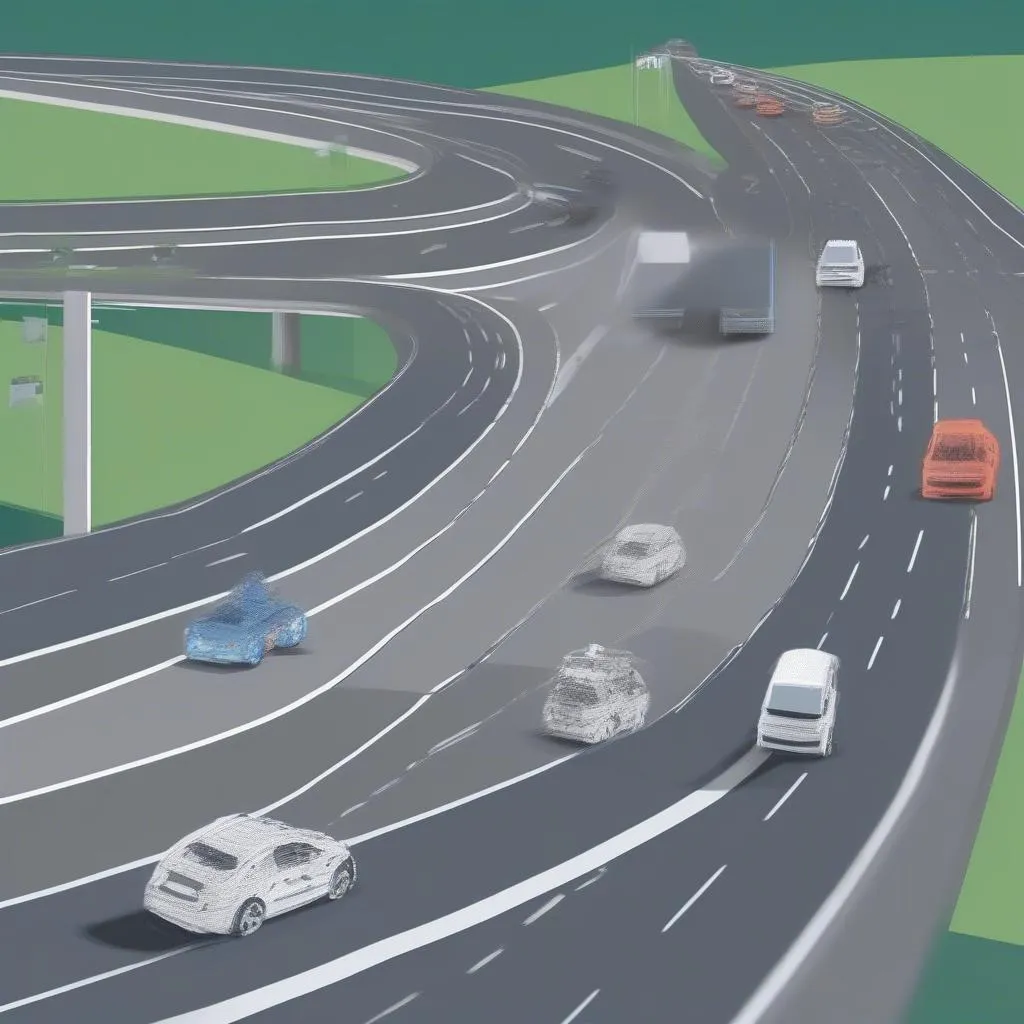Ever imagined a car that could drive itself, navigate traffic, and even park itself? That’s the dream of autonomous vehicles, or what we often call “robot cars.” These vehicles are equipped with advanced sensors, artificial intelligence, and complex algorithms that allow them to perceive their surroundings and make decisions on their own.
What are Robot Cars?
The term “robot car” often refers to autonomous vehicles, which are cars that can drive themselves without human intervention. These vehicles rely on a combination of technologies, including:
- Sensors: Cameras, lidar, radar, and ultrasonic sensors gather information about the vehicle’s surroundings, including other cars, pedestrians, and obstacles.
- Artificial intelligence (AI): Powerful algorithms analyze data from sensors and make decisions about driving, such as steering, braking, and accelerating.
- Mapping and localization: Detailed maps and GPS systems help the vehicle understand its location and navigate efficiently.
What Makes Robot Cars Possible?
The development of robot cars is a testament to the advancements in technology, particularly in the areas of:
- Artificial intelligence: AI algorithms are becoming more sophisticated, capable of analyzing complex data and making real-time decisions.
- Sensors: Advancements in sensor technology have led to more accurate and reliable data collection, crucial for the safe operation of autonomous vehicles.
- Computing power: The development of powerful microprocessors and GPUs enables vehicles to process vast amounts of data quickly and efficiently.
The Potential Benefits of Robot Cars
Robot cars have the potential to revolutionize the way we travel and interact with our cars. Some of the potential benefits include:
- Increased safety: Robot cars could significantly reduce the number of accidents, as they are not susceptible to human errors like fatigue, distraction, or impaired judgment.
- Reduced traffic congestion: By coordinating their movements and eliminating human inefficiencies, robot cars could contribute to smoother traffic flow.
- Improved accessibility: Robot cars could provide transportation options for people who are unable to drive themselves, such as elderly individuals or those with disabilities.
- Reduced emissions: By optimizing driving patterns and reducing unnecessary acceleration and braking, robot cars could contribute to lower emissions.
The Challenges of Robot Cars
Despite their potential benefits, robot cars still face several challenges that need to be addressed before they become widely adopted.
- Ethical considerations: Autonomous vehicles face complex ethical dilemmas when it comes to making decisions in unpredictable situations, such as accidents.
- Legal framework: There’s a need for clear legal frameworks governing the use and liability of autonomous vehicles.
- Infrastructure: Existing infrastructure, such as roads and traffic signals, may need to be adapted to accommodate robot cars.
- Public perception: There are concerns about public acceptance and trust in robot cars, especially regarding safety and security.
Robot Cars: A Glimpse of the Future
The development of robot cars is still in its early stages, but it’s an exciting area of technological advancement with the potential to transform the automotive industry. With ongoing research and development, we can expect to see more sophisticated and reliable robot cars in the future.
 A robot car navigating a highway with other vehicles
A robot car navigating a highway with other vehicles
Frequently Asked Questions About Robot Cars
Q: Are robot cars safe?
While robot cars have the potential to be safer than human drivers, there are still concerns about their safety. There is an ongoing debate about the reliability of autonomous vehicle technology, and the risks associated with potential malfunctions or unforeseen situations.
Q: How do robot cars navigate traffic?
Robot cars use a combination of sensors and AI to perceive their surroundings and make decisions about driving, such as steering, braking, and accelerating. They rely on detailed maps and GPS systems to understand their location and navigate efficiently.
Q: When will robot cars be widely available?
The timeline for the widespread adoption of robot cars is still uncertain. There are many factors to consider, including technological development, legal regulations, public acceptance, and infrastructure improvements.
Q: Are robot cars expensive?
Currently, robot cars are expensive to develop and manufacture, as they require advanced technology and sensors. However, as production scales up and costs decrease, we can expect to see robot cars become more affordable in the future.
Q: Will robot cars replace human drivers?
It’s unlikely that robot cars will completely replace human drivers in the near future. They may initially coexist and complement human driving, gradually taking over specific tasks or roles.
Want to Learn More About Robot Cars?
There is a vast amount of information available about robot cars, including news articles, research papers, and documentaries. You can also find many resources online that offer insights into the latest advancements in autonomous vehicle technology.
If you’re interested in learning more about robot cars, check out some of these related articles:
- How Do Robot Cars Work?
- Elegoo Smart Robot Car V4.0: A Beginner’s Guide
- Robot Cars: The Future of Transportation
For additional information on the latest developments and insights into the future of autonomous vehicles, contact our team of experts at Whatsapp: +84767531508.
Our team is available 24/7 to assist you with any questions or concerns you may have about robot cars or any other automotive technology.
Don’t hesitate to contact us!


